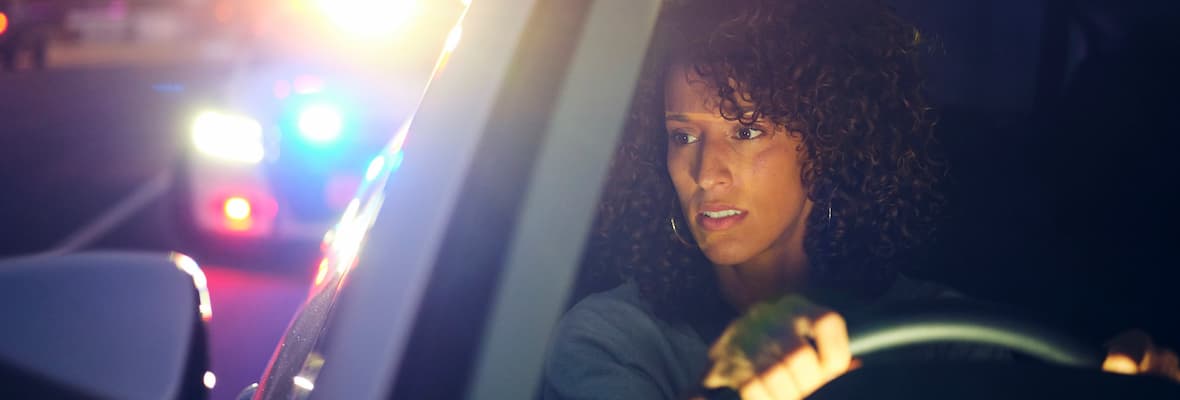While drinking can be a big part of Australian culture, combining drinking and driving can be a major risk. Not only could you lose your licence or be fined, but drink driving also makes you a danger to both yourself and others on the road.
We surveyed almost 1,000 Australian drivers aged between 18 and 75 about their behaviours and attitudes when it comes to drinking and driving. To better understand ongoing trends throughout the year, we also compared the results to our Drink Driving Survey and Statistics 2021. [1]
For more of a deep dive into how Australians view drinking and driving, check out Budget Direct’s latest survey below.
Quick Stats
- 14% of Australian respondents believe they have driven while over the legal limit in the past six months.
- More than a third of those surveyed aged 18 to 27 don’t know what the legal blood alcohol content (BAC) limit is in their state.
- Almost half of Australians surveyed don’t know how many drinks they could have and still be able to legally drive.
Drink Driving Statistics
In Australia, alcohol levels are defined by a person’s blood alcohol content (BAC), which is found by measuring the amount of grams of alcohol per 100 mL of blood.
The legal BAC limit for drivers on an Australian open licence is less than 0.05, while learners and provisional drivers require a 0.00 reading. When you start drinking, your BAC starts to rise before reaching its highest concentration 30 to 60 minutes after you stop drinking. [2]
In 2021, more than one in five road deaths across Australia involved a driver having an illegal BAC level.
This increased in remote areas of Australia where 31% of road crash fatalities in 2021 involved a driver who was over the legal limit.
Meanwhile, drunk driving fatalities on motorcycles were more likely in major cities where almost one-quarter of motorcyclist deaths involved a driver with an illegal BAC level. [3]
Laws Against Drink Driving
The penalty for drink driving can depend on a range of factors including:
- If the driver is a repeat offender
- What type of licence the driver holds
- How far over the limit the driver is
- Whether the driver was also driving recklessly while being over the limit
- If the driver has other traffic offences on their record
Depending on the circumstances, penalties can include a fine, licence disqualification, court order or imprisonment.
As of September 2023, Queensland’s on-the-spot fine for first-time drink drivers on an open licence is the highest in the country at $2,167. [4]
This can be compared to the least expensive fine of $390 in Tasmania for a BAC over 0.05 and under 0.10. [11]
Drink Driving Penalties for First-Time Offenders
| BAC (>0.05) | Licence Disqualification | Fine | |
|---|---|---|---|
| Qld [4] | <0.10 | 1 to 9 months | $2,167 |
| SA [5] | <0.079 | 3 months | $824 |
| WA [6] | <0.08 | Decided by the court | $1,000 |
| ACT [7] | <0.08 | 2 to 6 months | $800 |
| NSW [8] | <0.079 | 3 to 6 months | $603 |
| Vic [9] [10] | <0.069 | 3 to 6 months | $577 |
| NT [11] | <0.08 | 3 months | $400 |
| Tas [12] | <0.10 | 3 months | $390 |
Drink Driving Survey Results
In the past six months, have you ever driven a car/motor vehicle under the belief that you might be over the legal blood-alcohol limit?^
^Due to how the figures are rounded within the survey data, numbers may not add up to exactly 100%.
Of the Australians surveyed, 14% said they had driven under the belief they might be over the legal BAC limit in the past six months.
This result is double what was found in 2021 when just 7.2% of respondents said they had driven under the belief that they were over the legal limit. [1]
Respondents from New South Wales were the most likely state to say that they had driven under the belief they were over the alcohol limit with almost one in five saying they had done so in the past six months.
This was closely followed by 17.3% of Western Australian respondents who also said they had done so in the past six months.
Older respondents were much less likely to have driven under the belief that they were under the influence than younger respondents.
Around 92% of respondents aged 58 to 75 said they hadn’t been behind the wheel with the potential of being under the influence in the past six months.
Meanwhile, 18- to 27-year-old respondents were the most likely to have driven while potentially over the limit in the past six months, according to 18.5% of those surveyed in the age group.
Were there any passengers in the car?^*
^Due to how the figures are rounded within the survey data, numbers may not add up to exactly 100%.
*Only respondents who said they had driven in the past six months under the belief they could be over the legal limit answered this question.
Of the respondents who said they had driven in the past six months under the belief that they were over the limit, 54.3% said there were passengers in the car at the time.
This response is up from what was found in 2021 where 38.9% of respondents said there were passengers in the car. [1]
Meanwhile, three-quarters of those who responded aged 68 to 75 said when they drove under the belief that they were over the limit, there were no passengers in the car.
Do you know the exact legal BAC (blood alcohol content) limit in your state?^
^Due to how the figures are rounded within the survey data, numbers may not add up to exactly 100%.
Almost a quarter of respondents said they didn’t know what the exact BAC limit was in their state. This response rate has remained relatively similar over the past two years when 21.9% of respondents said they didn’t know their state’s legal limit in 2021. [1]
Victorian respondents were most likely to know the BAC limit with 81.8% of those who were surveyed saying they knew the state limit was 0.05.
Meanwhile, more than a quarter of respondents from New South Wales, Queensland and Western Australia said they didn’t know what the limit was in their state.
In the 18 to 27 age range, 35.9% of those surveyed said they didn’t know the legal BAC limit in their state.
Do you know the exact amount of drinks you can have and still drive underneath your legal BAC (blood alcohol content) limit?^
^Due to how the figures are rounded within the survey data, numbers may not add up to exactly 100%.
Almost half of those who were surveyed said they didn’t know how many drinks they could have and still be under the BAC limit to legally drive.
Younger respondents were more likely to not know how many drinks they could have before being over the legal limit, according to 56.3% of respondents aged 18 to 27.
However, older respondents weren’t far behind in our results with 50.2% of those surveyed aged 38 to 47 also saying they weren’t sure how many drinks they could have before being over the legal limit.
Which of the following techniques do you think would help decrease your BAC (blood alcohol content)?^
| 18-27 | 28-37 | 38-47 | 48-57 | 58-67 | 68-75 | |
|---|---|---|---|---|---|---|
Drinking water |
60.19% |
50.00% |
39.27% |
41.24% |
34.38% |
30.77% |
Sleeping |
46.60% |
35.17% |
28.77% |
19.21% |
18.75% |
19.23% |
Eating something greasy |
29.13% |
22.46% |
19.18% |
16.95% |
10.63% |
9.62% |
Exercising |
26.21% |
24.15% |
15.53% |
11.30% |
7.50% |
8.65% |
Drinking tea/coffee |
20.39% |
15.68% |
13.24% |
13.56% |
11.25% |
10.58% |
Taking a cold shower |
13.59% |
7.20% |
6.85% |
6.78% |
1.88% |
2.88% |
None of the above |
27.18% |
38.98% |
51.14% |
54.24% |
60.63% |
61.54% |
| NSW | Vic | Qld | SA | WA | |
|---|---|---|---|---|---|
Drinking water |
42.63% |
43.02% |
42.29% |
43.24% |
44.23% |
Sleeping |
29.15% |
30.62% |
22.89% |
32.43% |
25.96% |
Eating something greasy |
19.44% |
17.44% |
15.92% |
25.68% |
20.19% |
Exercising |
16.30% |
17.05% |
15.42% |
10.81% |
18.27% |
Drinking tea/coffee |
14.11% |
16.28% |
9.95% |
13.51% |
19.23% |
Taking a cold shower |
7.84% |
7.75% |
5.97% |
4.05% |
3.85% |
None of the above |
48.28% |
48.84% |
50.75% |
41.89% |
49.04% |
^Respondents were able to select more than one option, so numbers may not add up to 100%.
The majority of respondents said they believed none of the suggestions in the survey would be able to reduce their BAC after drinking.
These respondents would be right as the only thing that reduces your BAC level is time. The liver generally takes one hour to process the alcohol from one standard drink. [2]
Despite this, 42.6% of those who were surveyed said they believed that drinking water would decrease their BAC.
The second most common response was sleeping, with 27.8% of respondents saying they believed this would decrease their BAC, followed by eating something greasy.
The men who were surveyed were almost twice as likely as women to think that exercising would help reduce their BAC level, with 20.8% of men choosing this option compared to 11.4% of women respondents.
Older respondents were more likely to say that none of the options would help reduce their BAC with 61.5% of those aged 68 to 75 years old choosing this option, compared to 27.2% of those aged 18 to 27.
Should all cars be fitted with a device that checks your BAC (blood alcohol content) before you’re able to start the engine?^
^Due to how the figures are rounded within the survey data, numbers may not add up to exactly 100%
Australians who were surveyed were split down the middle regarding whether or not they believed all cars should be fitted with a breathalyser before starting the engine.
Although the margin is small, the majority of respondents (51.1%) said they believed cars shouldn’t be fitted with a device to check your BAC before you start the engine.
This slim margin has flipped since 2021 when the majority of respondents (53.7%) said they believed cars should be fitted with BAC-checking devices. [1]
Those surveyed in Victoria (55.8%) were the most likely to disagree with cars being fitted with a breathalyser while Queensland respondents (52.2%) were the most likely to agree.
In 2022, this theory was tested in New South Wales where a study found that high-range drink drivers were 86% less likely to commit a new drink driving offence when the breathalyser device was installed in their cars. [13]
What is the minimum penalty that you believe should be given to first-time drink driving offenders?^
^Respondents were able to select more than one option, so numbers may not add up to 100%.
Almost half of the respondents said they believed a fine and demerit points were enough penalty for first-time drink driving offenders.
This was followed by 37.9% of respondents who said first-time drink drivers should lose their licence for up to six months.
Respondents from South Australia were the most likely state to say they believed that first-time drink drivers should lose their licence for more than six months, according to 17.6% of those surveyed.
The minority of respondents said they believed first-time drink driving offenders should go to jail for their offence with 3.6% saying they believed offenders should be imprisoned for more than six months.
This was up from the results in 2021 where just 1.9% of respondents said first-time offenders should have six months in jail as a penalty. [1]
Do you think drink driving is more of an issue with younger generations or older generations?^
^Respondents were able to select more than one option, so numbers may not add up to 100%.
Most Australians who were surveyed believed that drink driving was an issue with both younger and older generations.
However, one in five respondents said they believed it was mostly an issue with younger generations.
Younger respondents were also the most likely age group to say that drink driving was a bigger issue with younger drivers, according to 29.1% of respondents aged 18 to 27.
Victorian respondents also had this view with a quarter of those surveyed saying drink driving was a bigger issue with younger drivers.
Meanwhile, 16.4% of Western Australian respondents said the issue of drink driving was greater in older generations.
Key Takeaways
Young Drivers At Risk
Our survey found that younger drivers could pose more of a risk when it comes to drink driving. A lack of education could be what’s impacting their behaviours on the road.
The youngest group of respondents, those aged 18 to 27, were the most likely age group to have driven while potentially under the influence in the past six months.
They were also the most likely to not know the legal BAC limit in their state and to not know how many drinks they could have before being over the legal limit to drive.
Meanwhile, 60% of those aged 18 to 27 who were surveyed said they believed water could reduce their BAC level, while just 27% of respondents knew that none of the responses in the survey would sober them up.
However, they also appeared to be self-aware with younger respondents being the most likely age group to say that drink driving was a bigger issue with younger drivers compared to older drivers.
More Drivers Admitting to Drink Driving
Our results found that 14% of Australians surveyed said they had driven under the belief they might be over the legal BAC limit in the past six months.
While the percentage is still fairly small, the response rate is double what was found in the 2021 survey results when just 7.2% admitted to driving under the belief they could be over the limit. [1]
Meanwhile, of those who said they did potentially drive under the influence in 2023, just over half said they had passengers in the car when it happened.
Drivers Satisfied With Current Penalties
When it comes to penalties, almost half of those surveyed believed that fines and demerit points were enough for drink driving offences.
Meanwhile, more than a third of respondents believed offenders should lose their licence for up to six months.
Most states and territories currently have both fines and licence disqualifications in place as penalties for first-time offenders. So the majority of those who were surveyed might feel nothing else is necessary.
However, almost half of respondents also believed all cars should be fitted with a breathalyser device.







